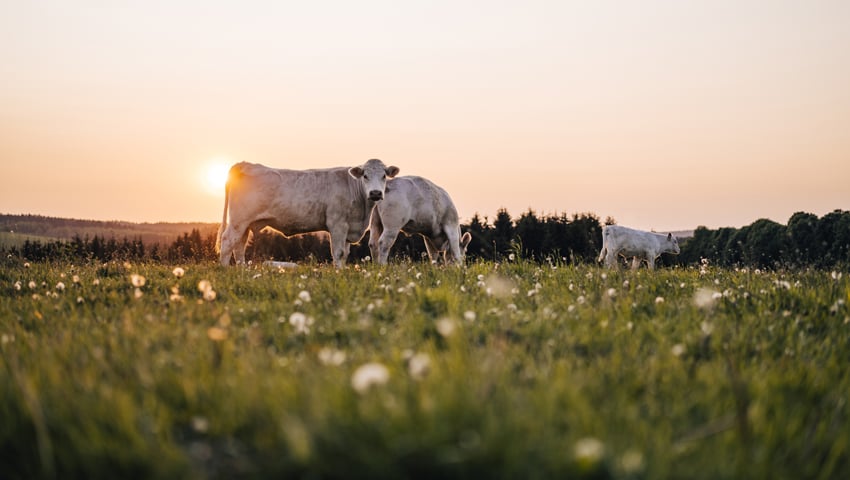UNIVERSITY of California, Davis, scientists are teaming up with UC Berkeley and UC San Francisco researchers on a $70-million donor-funded initiative that aims in part to cut climate change-causing emissions from cattle by using the genome-editing tool CRISPR on microbes in the cows’ gut.
Professor Ermias Kebreab, known for his innovative research using feed additives to reduce methane emissions, and Associate Professor Matthias Hess will collaborate with a world-renowned team at UC Berkeley: Professors Jennifer Doudna and Jill Banfield. Doudna won the 2020 Nobel Prize in chemistry for her work to develop CRISPR genome-editing technology. Earlier this year, Banfield became the first woman to win the van Leeuwenhoek Medal for her impact on the field of microbiology.
The ground breaking health and climate initiative is being funded by TED’s Audacious Project, which provides donor support to encourage the world’s greatest change makers to dream bigger. Announced at the TED conference in Vancouver earlier this year, “Engineering the Microbiome with CRISPR to improve our climate and health” is the largest scientific award funded through the project to date.
University of California President Michael V. Drake said, “This cutting-edge initiative will harness the University of California’s research prowess to solve real-world problems in areas that affect us all: sustainability and health. I’m very pleased to see multiple UC entities working collaboratively to develop and deploy new technology for the public good. I’m grateful to our philanthropic partners for supporting impactful research that will change the world for the better.”
Kebreab, an animal scientist and associate dean of global engagement at the College of Agricultural and Environmental Sciences, and Hess, a microbiologist, will serve as co-principal investigators at UC Davis to build on their successful work reducing methane emissions in livestock. In 2021, Kebreab gave a TED Talk on his breakthrough studies that reduced cow methane emissions by up to 82% with seaweed feed additives.
Doudna and Banfield are leading the initiative at the Innovative Genomics Institute, or IGI, at UC Berkeley. They are combining their expertise to build a new toolkit to address global problems in climate and human health by applying CRISPR genome editing and genome-resolved metagenomics to complex microbial communities known as microbiomes.
Methane emitted in cow burps comes from gas-producing microbes in the gut. Engineering these microbes to produce less methane would help limit emissions before they are burped out.
Associate Professor Matthias Hess said, “We’re trying to come up with a solution to reduce methane that is easily accessible and inexpensive, without restrictions or limitations, and that can be made available not only to California but globally.”
Hess and Kebreab’s vision is to one day deliver oral treatments to calves to intervene in their microbial systems at an early stage and reduce methane emissions for the rest of their lifetimes. While this is hypothetical for now, early studies offer hope it could eventually become a global practice.
Kebreab said, “Engineering microbes directly where they live, without the need to isolate them, has not been done yet because there is no tool to do it. Now, with UC Berkeley, we will be developing those tools. This type of funding gives us a lot more room to explore things that we might not otherwise be exploring.”
Hess and Kebreab’s labs are pairing up their complementary expertise: Hess will test the microbial tools and biocontainment strategies developed at the IGI in a lab setting, then he will deliver findings and results to Kebreab to apply to the animals out in the field.
